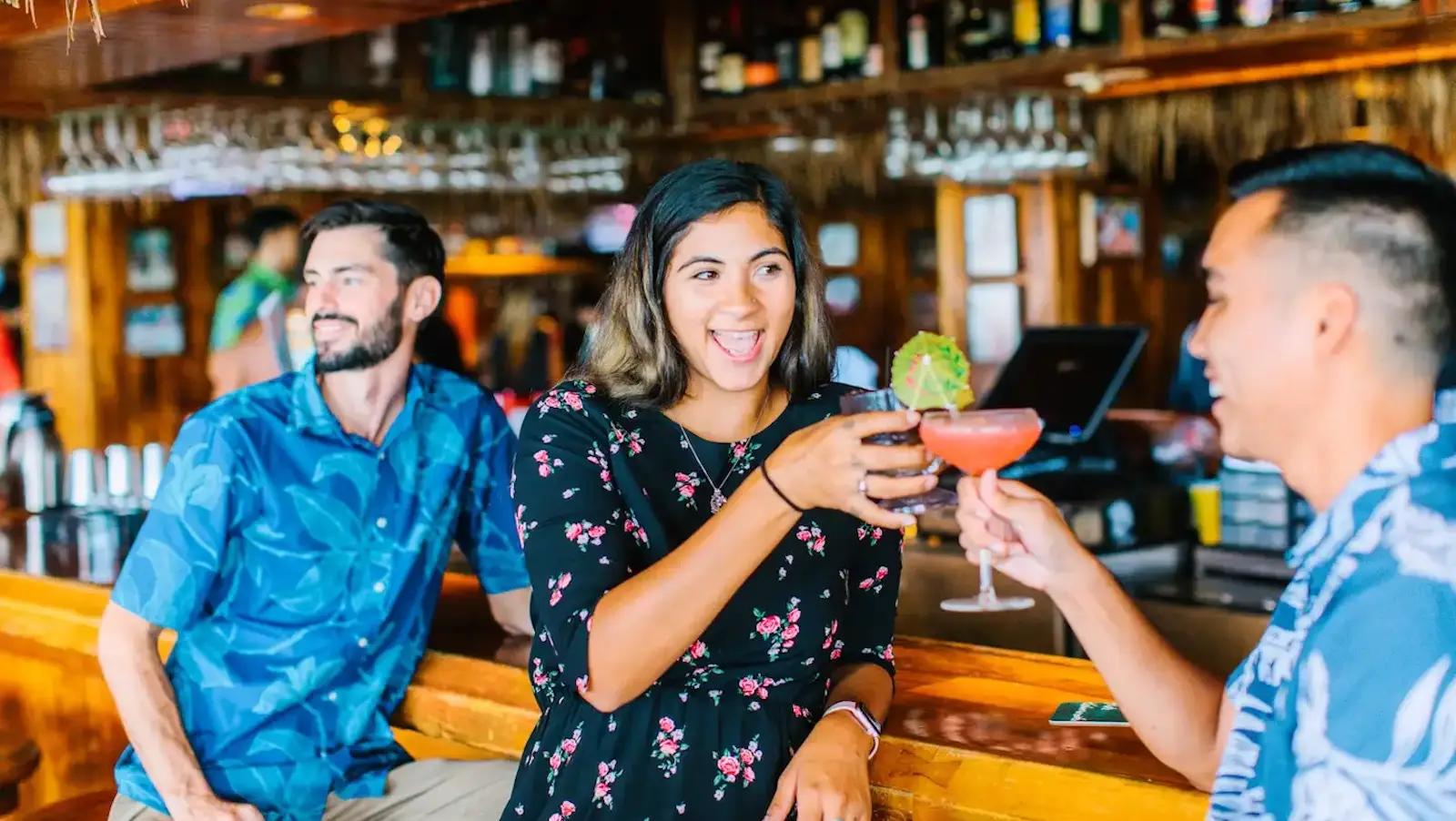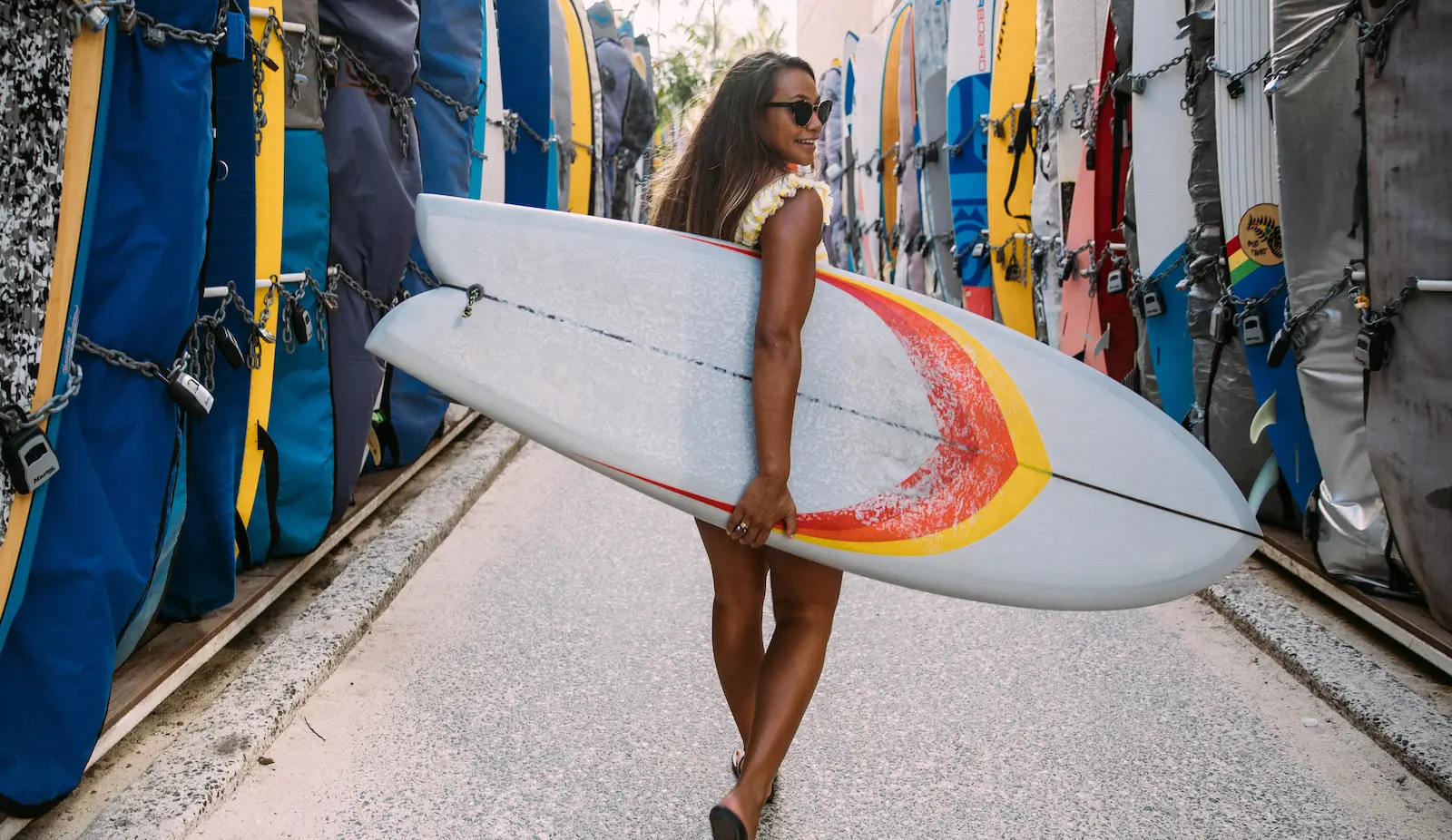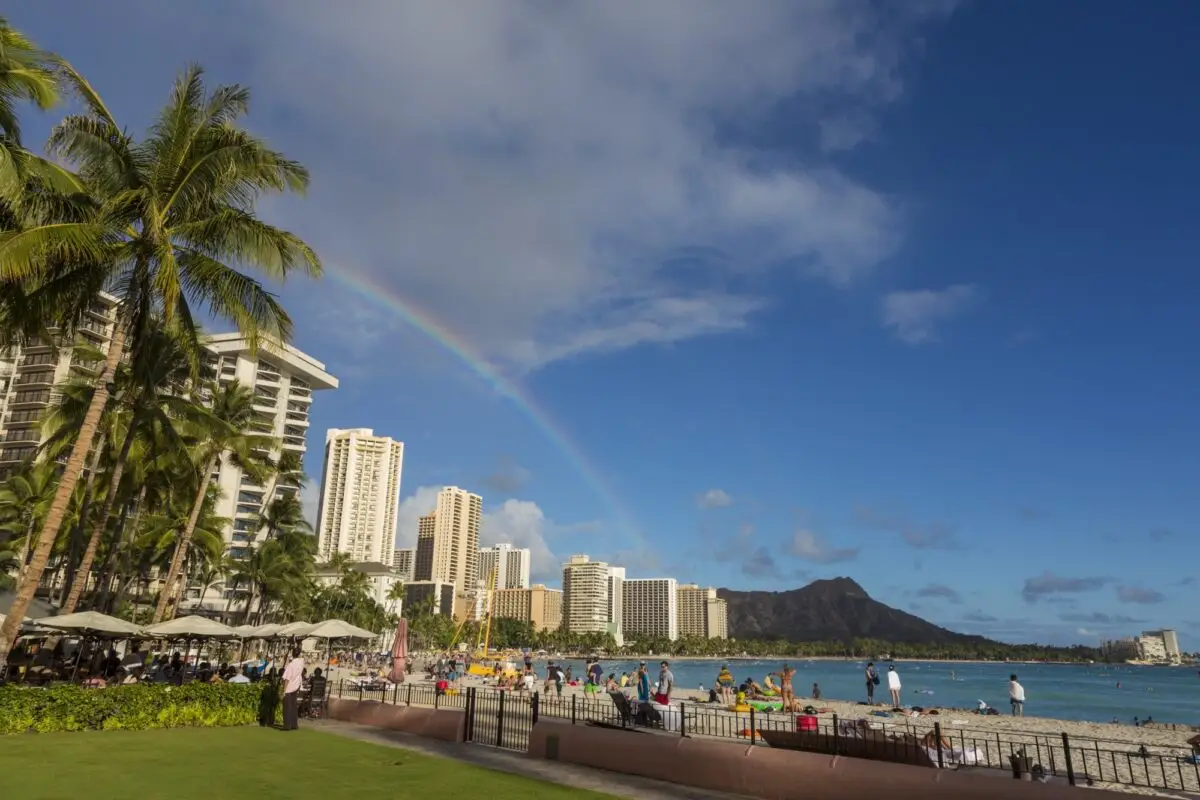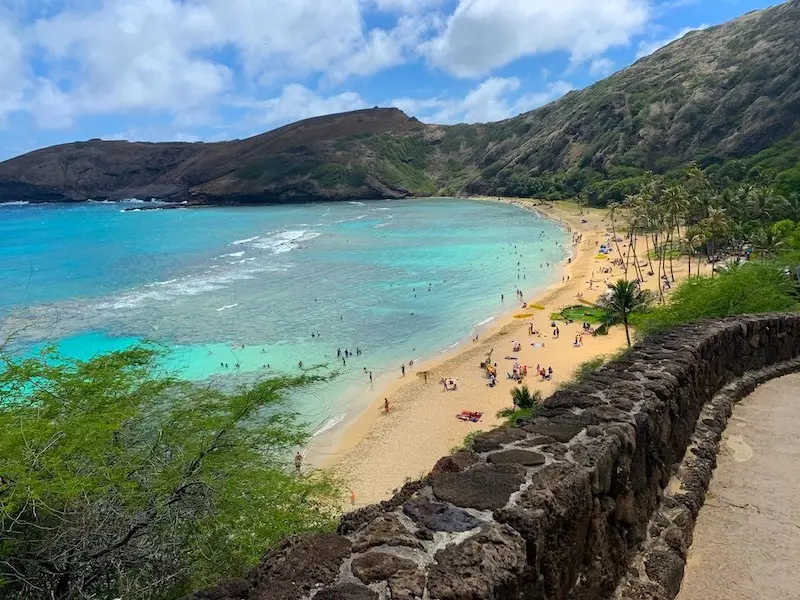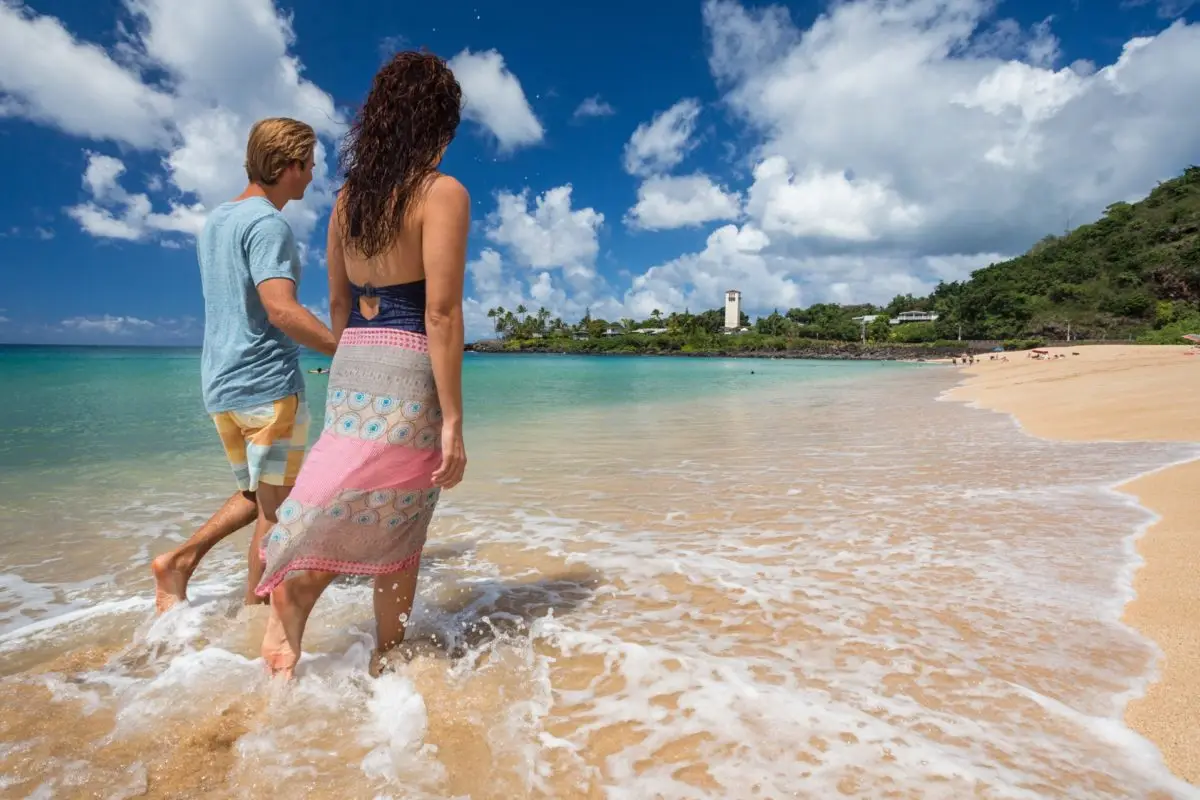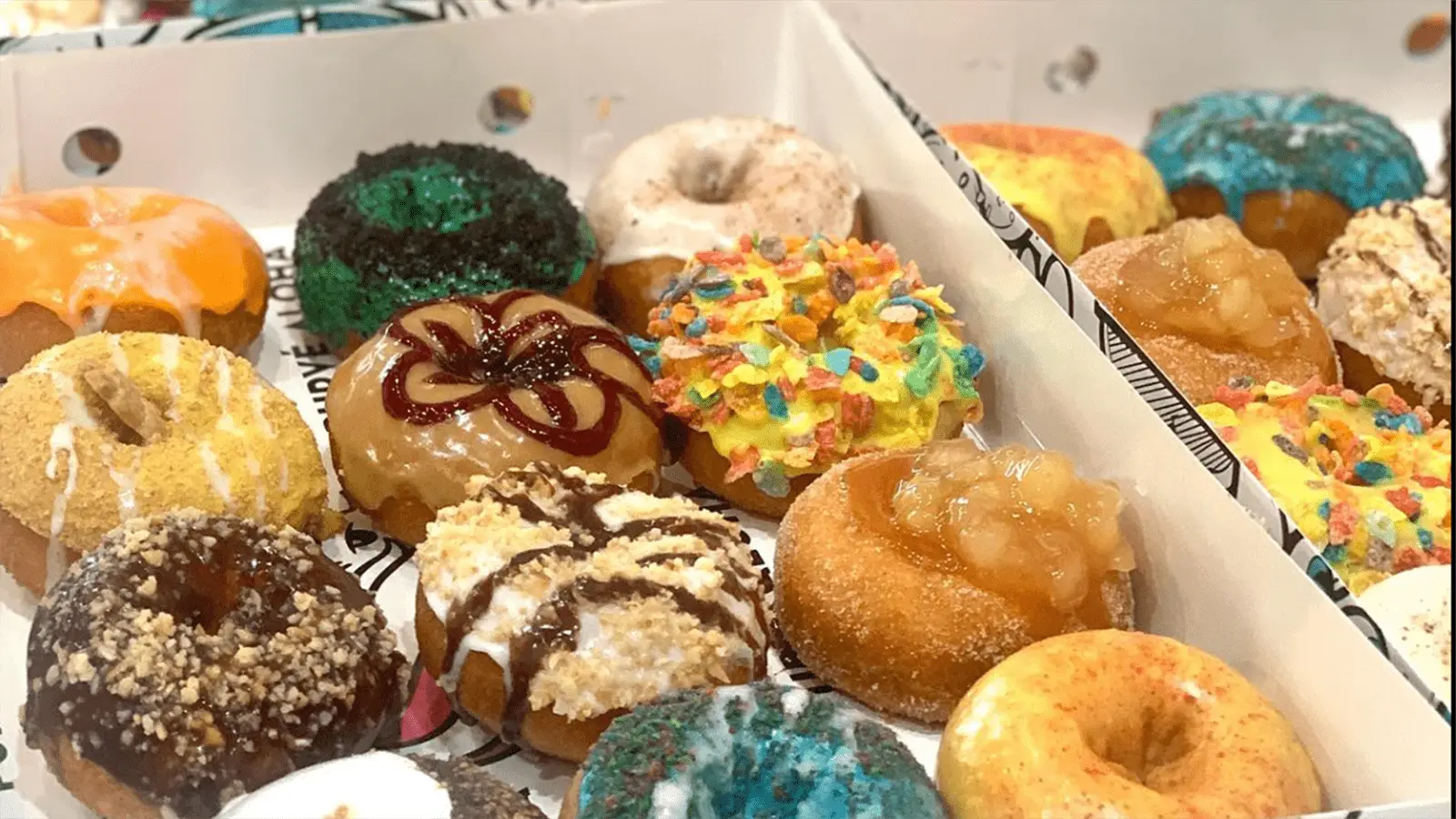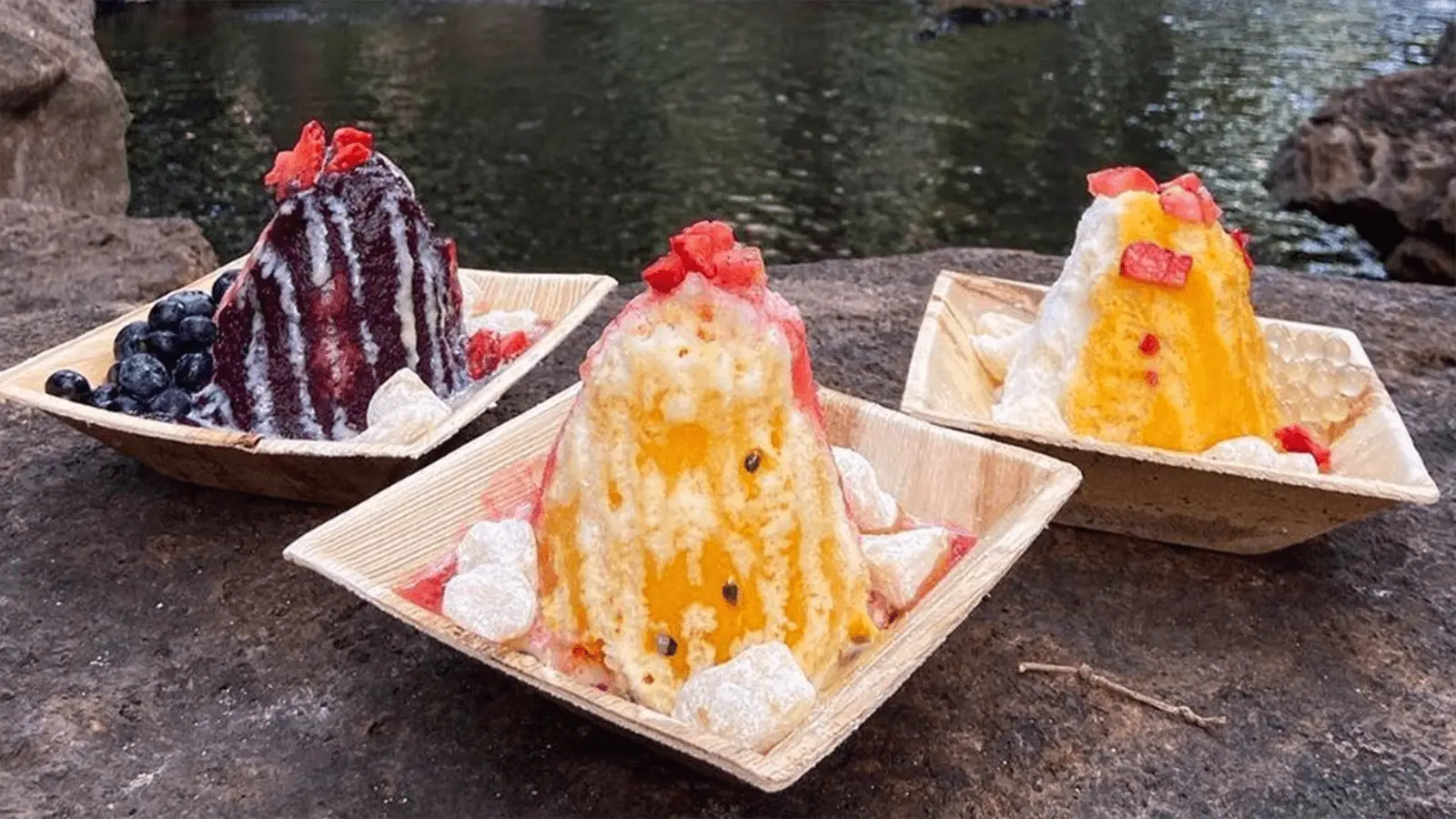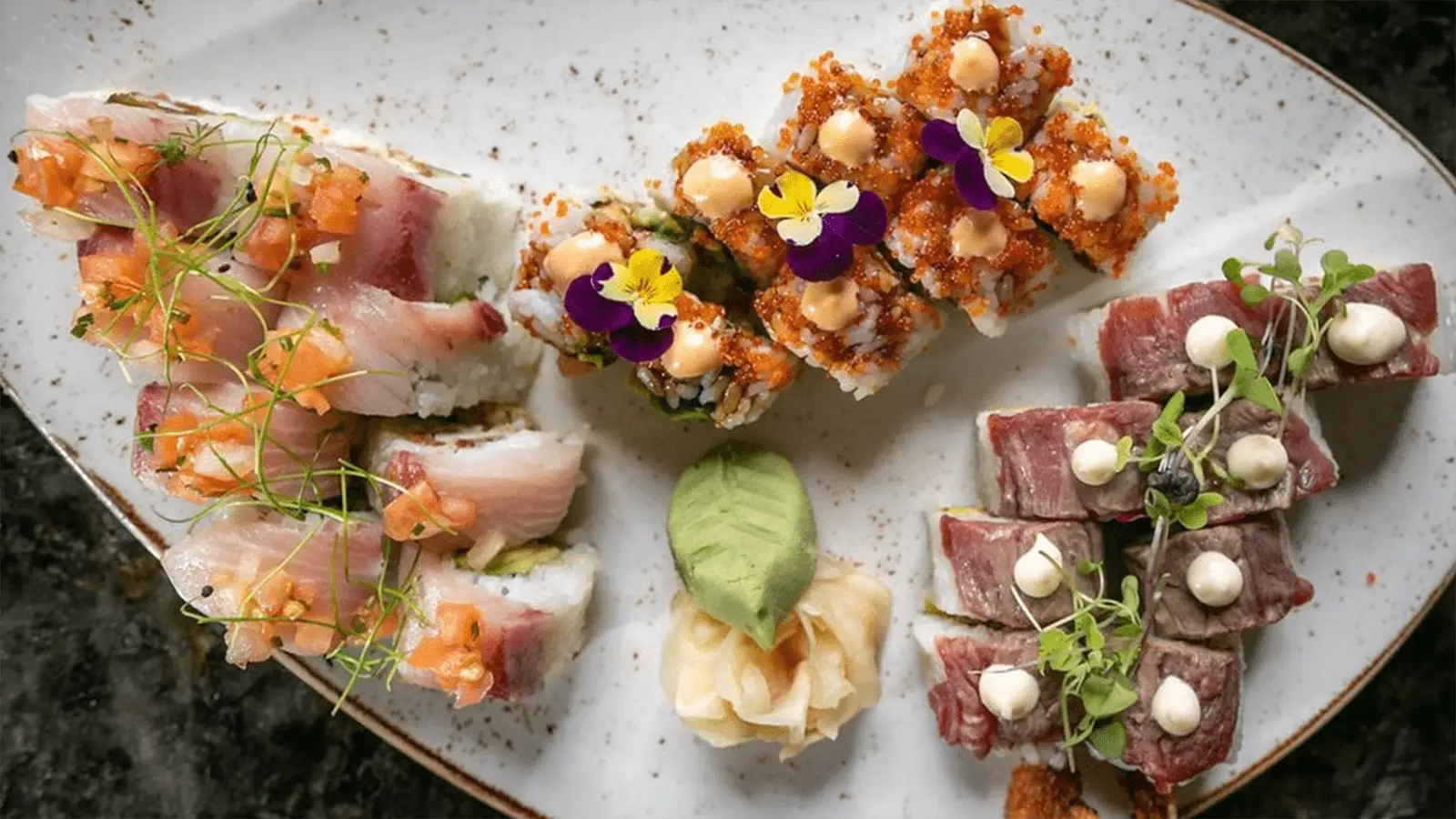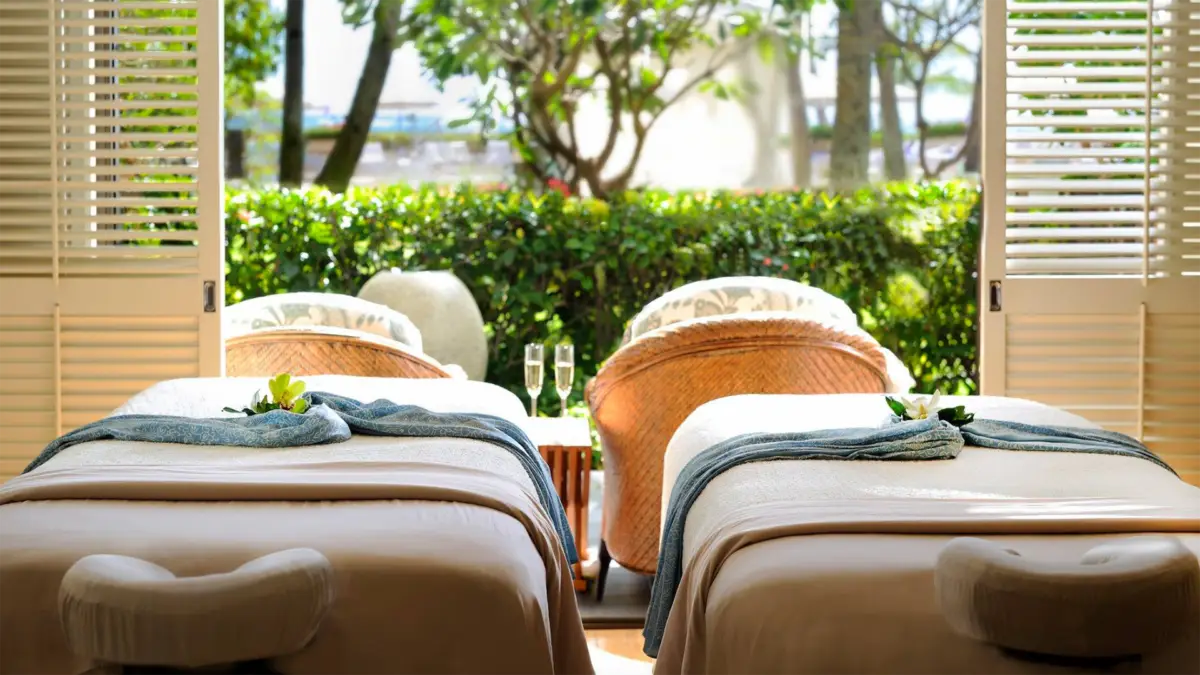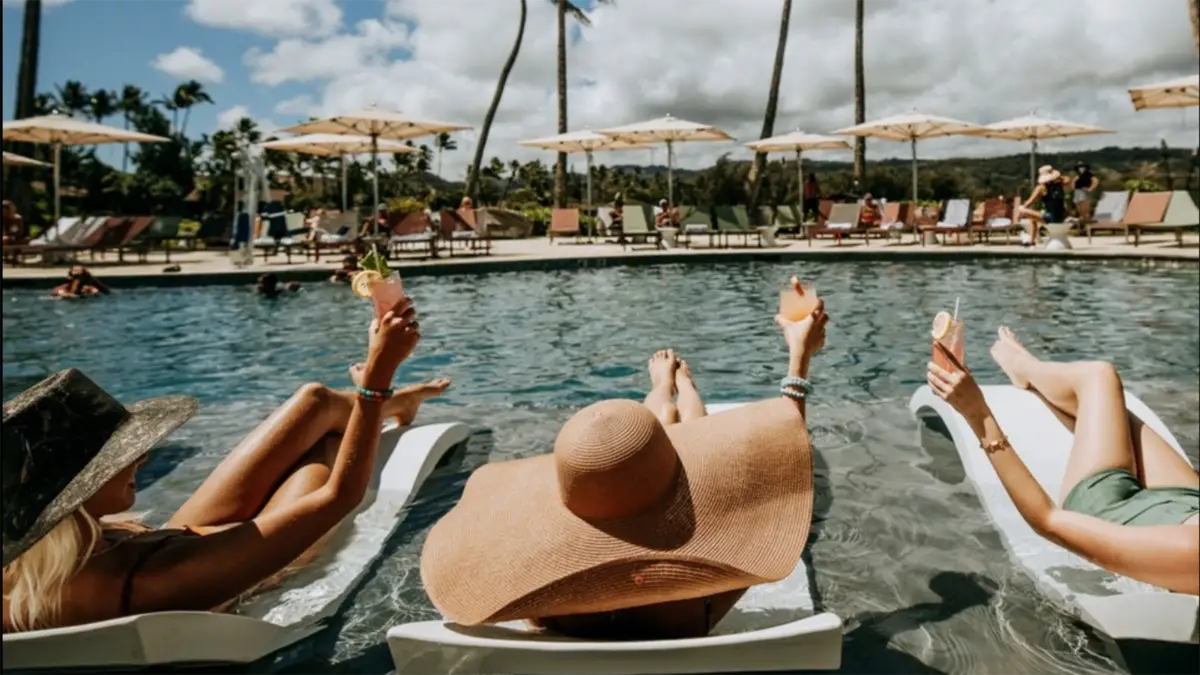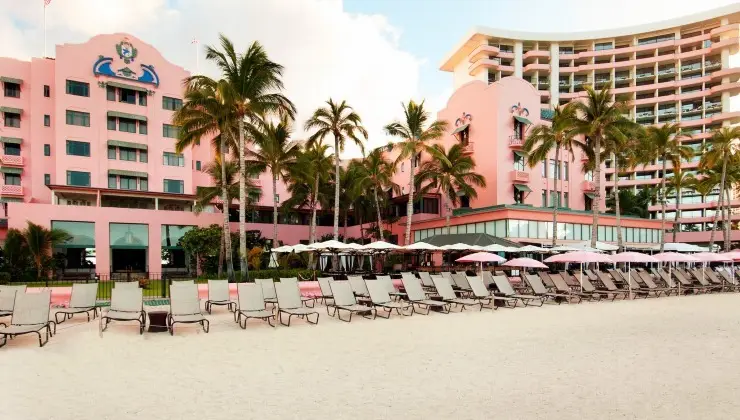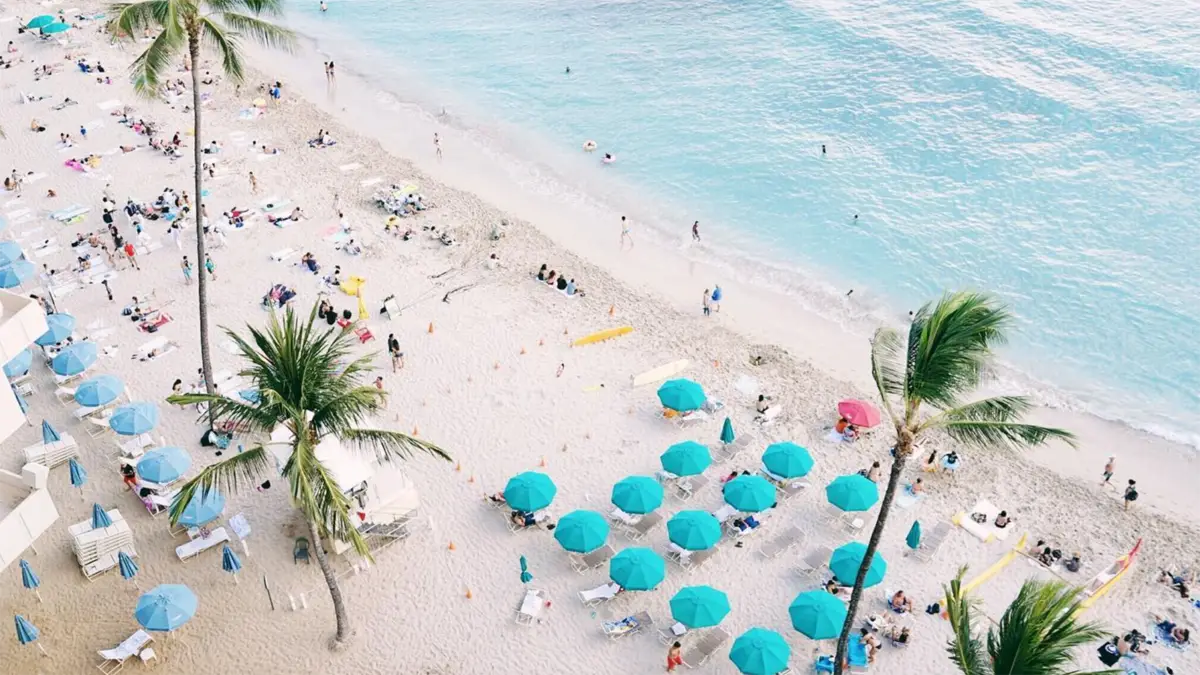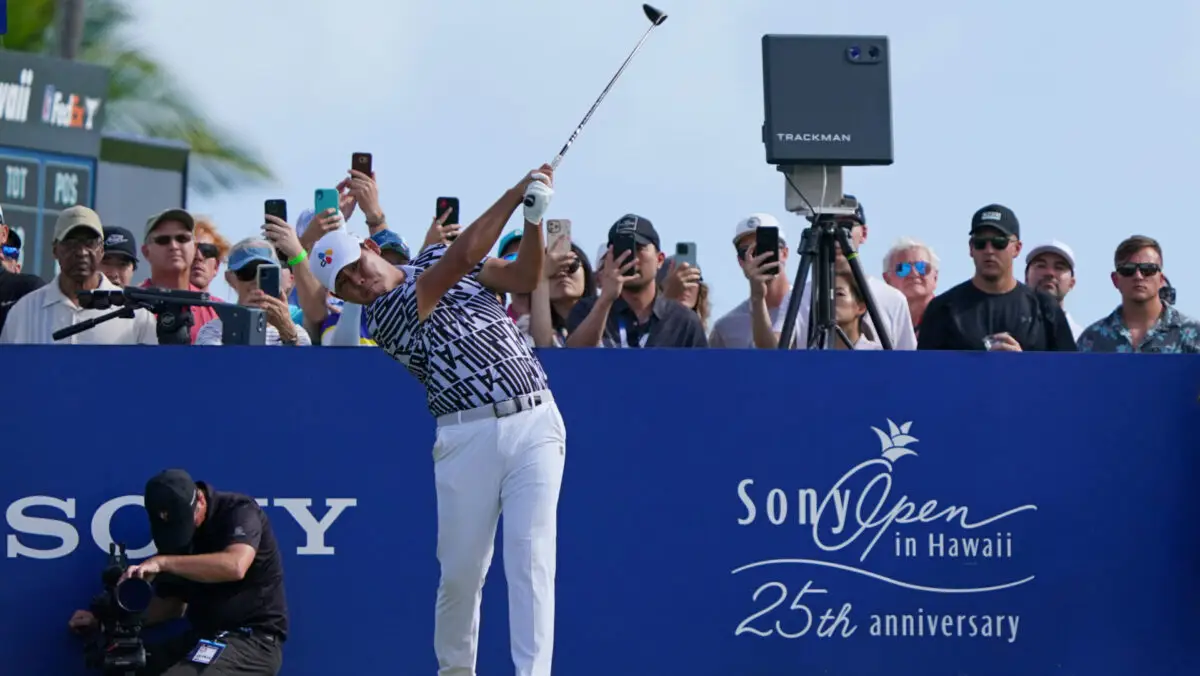
Waikiki
Travel Waikiki Like a Local
Everything you need to know about visiting Oahu's Waikiki, curated by local experts
- Waikīkī“ means spouting water”
- Honolulu means “sheltered harbor”
- The first restaurant in Honolulu debuted in 1849
- The Moana Surfrider was the first hotel on Oahu established in 1901 (rooms cost $1.50)
- Waikiki is the birthplace of modern surfing
- King Kalakaua created Kapiolani Park in 1870, which now includes a zoo and world-famous outdoor music venue.
- Since 2022, Honolulu has banned restaurants from giving diners polystyrene foam containers and disposable plastic serviceware.
Waikiki (pronounced why-key-key) was the playground for the ali‘i, or Hawaiian royalty, for centuries before the state’s tourism industry began here in 1901, and this iconic Honolulu (pronounced hon-oh-loo-loo) neighborhood is where much of it continues today. Glittering Leahi (a.k.a. Diamond Head) and shaded Kapiolani Park to the east, Ala Wai Canal (ala meaning “way” and wai “water”) to the north and bustling Ala Wai Harbor to the west frame the 1.5-square-mile stretch along Oahu’s South Shore. High-rise vacation condos and historic hotels, cheap food courts and posh restaurants, inexpensive souvenir shops and luxury retailers, plus nightclubs, bars and lounges of every stripe line its busy but broad sidewalks. You’ll find family attractions such as the Honolulu Zoo and Waikiki Aquarium here too. Waikiki is best known, however, for its long series of beaches with gentle rolling waves, beloved by surfers of every level, and just enough sand to accommodate hundreds of sun worshippers.
Countless TV and film appearances, along with visits by generations of celebrities — from Shirley Temple and Duke Kahanamoku to Elvis Presley and Don Ho, and the stars of two versions of Hawaii Five-O — have helped keep Waikiki in the public eye for decades. Its star power also includes the best entertainers in Hawaiian music, performing al fresco at the Kani Ka Pila Grille or Duke’s Waikiki, or inside the elite Blue Note Waikiki. You’ll also see stars every Friday night, thanks to the Hilton Hawaiian Village fireworks show over the ocean.
Bubbling springs and rivers, now mostly diverted, gave Waikiki its name, which means “spouting water” (waikīkī). As early as the 15th century, Hawaiians used these valuable resources to create taro patches and fishponds in the area, which also became a seat of power for local rulers. The appearance of a legendary rooster (moa) led Chief Kakuhihewa to plant a coconut grove where the Royal Hawaiian Hotel and its tranquil grove stand today, a place the Hawaiians called Helumoa (“chicken scratch.”)
In 1794, King Kamehameha I landed his war canoes on Waikiki Beach as part of his quest to unite the islands under his rule. He later built a home at Helumoa and in 1809, moved his court to Waikiki. Subsequent royals lived and vacationed in the area, too; much of the land remains in their estates bequeathed to various charities.
In 1901, the Moana Hotel became Waikiki’s first hotel, still standing today as the Moana Surfrider. Elegant Matson Line cruise ships soon started ferrying visitors from San Francisco to the pier at Honolulu’s Aloha Tower, many heading to the Royal Hawaiian Hotel, which Matson built in 1927. The growing destination saw numerous visitors until the bombing of Pearl Harbor on Dec. 7, 1941, when all tourism halted until the end of the war in 1945. The introduction of jet service in the 1960s saw a new boom in visitors, spurring Waikiki to become the bustling, international vacation spot it is today.

